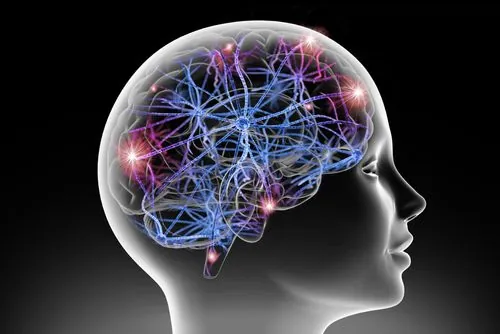
Revolutionary Brain Enzyme Discovery Could Combat Obesity: The Breakthrough You Need to Know About!
2024-12-16
Author: Jacques
Revolutionary Brain Enzyme Discovery Could Combat Obesity
In an exciting breakthrough that could revolutionize our understanding of obesity management, researchers at the Université de Montréal have made significant strides in understanding the neurological mechanisms that dictate our eating habits and physical activity levels. Medical professor Stephanie Fulton and her dedicated team have been diligently researching how metabolism impacts mood and behavior, culminating in a recent publication in *Nature Communications*.
Key Findings of the Study
The study, spearheaded by doctoral student David Lau and former postdoctoral fellow Stephanie Tobin, highlights a crucial finding: body-weight regulation in mice is intricately influenced by neurons in the nucleus accumbens. This brain region, known for its dense concentration of endocannabinoids, plays a central role in shaping food rewards and motivating physical activity.
The Role of ABHD6 Enzyme
One of the key players identified in this research is the enzyme ABHD6, which is responsible for breaking down a vital endocannabinoid known as 2-arachidonoylglycerol (2-AG). Previous work by Marc Prentki's team revealed that inhibiting ABHD6 throughout the body leads to reduced body weight and increased protection against diabetes. However, the latest study dives deeper into how ABHD6 impacts appetite regulation specifically within the brain.
Unexpected Outcomes
Fulton's team encountered an unexpected outcome: instead of triggering an increase in food intake as they anticipated, the deletion of the ABHD6 gene in the nucleus accumbens actually led to decreased food motivation and a notable increase in physical activity. "The mice exhibited a preference for spending time on a running wheel while their counterparts became obese and inactive," Fulton explains. This astonishing result suggests that manipulating the levels of 2-AG in the brain could be pivotal in controlling weight.
Further Investigations
Moreover, the researchers took their investigation a step further by administering a targeted ABHD6 inhibitor directly into the brains of the mice, yielding protective effects against weight gain and obesity. This discovery raises hope for new therapeutic avenues for individuals struggling with obesity.
Mental Health Considerations
In a particularly promising finding, the studies indicated that the mice with inhibited ABHD6 did not display any signs of anxiety or depressive behavior. This is a critical advancement, especially in light of the controversial weight-loss drug Rimonabant, which was withdrawn due to severe depression and suicidal tendencies reported by users.
Future Implications
As Fulton and her colleagues continue to explore the potential of ABHD6 inhibitors, they believe their findings could herald transformative treatments for obesity and metabolic conditions such as type 2 diabetes. While the research has been conducted exclusively in mice thus far, the scientific community is keenly watching to see if these mechanisms hold true in human physiology.
Conclusion
With obesity rates continuing to soar globally, this discovery offers a glimmer of hope for new strategies to combat this epidemic. Keep an eye out for future developments as this promising research unfolds!









 Brasil (PT)
Brasil (PT)
 Canada (EN)
Canada (EN)
 Chile (ES)
Chile (ES)
 España (ES)
España (ES)
 France (FR)
France (FR)
 Hong Kong (EN)
Hong Kong (EN)
 Italia (IT)
Italia (IT)
 日本 (JA)
日本 (JA)
 Magyarország (HU)
Magyarország (HU)
 Norge (NO)
Norge (NO)
 Polska (PL)
Polska (PL)
 Schweiz (DE)
Schweiz (DE)
 Singapore (EN)
Singapore (EN)
 Sverige (SV)
Sverige (SV)
 Suomi (FI)
Suomi (FI)
 Türkiye (TR)
Türkiye (TR)